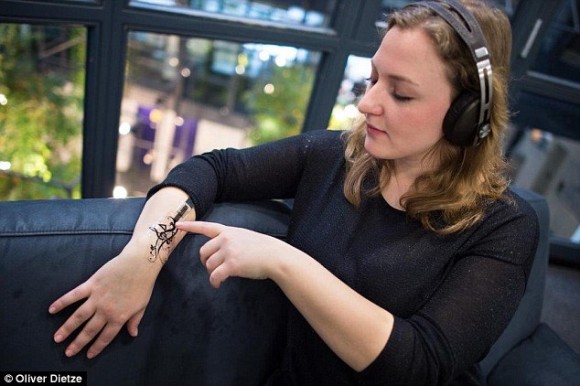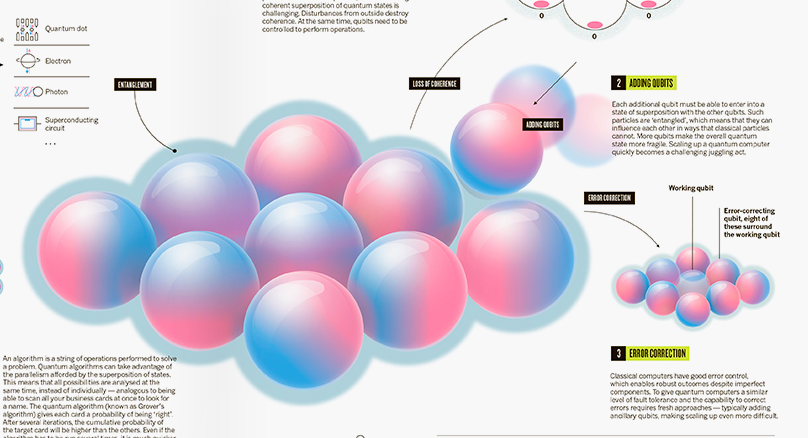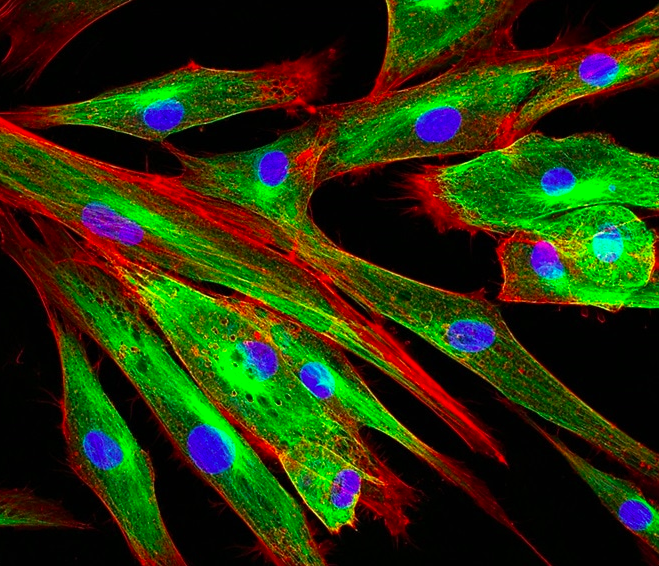aNewDomain — It is all about the skin. The skin of your smartphone that will soon be able to repair itself. Or the wearable iSkin that will control similar functions. The two innovation challenges are self repair and/or remote control of functionalities. There is a 4 billion dollar per year repair industry hoping that these innovations wont be available for a long time.
The Flexible Sensor
Soon your mobile device will be sporting not a glass screen, but a flexible polymer one. This new material will make it possible to use touch technology in more innovative ways – from developing a flexible phone or tablet that can fold, to “electronic skin” that can actually repair a scratched screen automatically.
More promising, the same technology could also be used for things such as artificial skin for people, with the polymer that it developed integrated into the skin of burn victims, providing them with a new, healable layer of artificial skin that can repair itself, just like real skin, according to researchers at the Technion in Haifa.

The technology was developed in Israel in the lab of Professor Hossam Haick, who worked on the project together with Technion researcher Dr. Tan-Phat Huynh.
“The vulnerability of flexible sensors used in real-world applications calls for the development of self-healing properties similar to how human skin heals,” said Haick. “We have developed a complete, self-healing device in the form of a bendable and stretchable chemiresistor where every part, no matter where the device is cut or scratched, is self-healing.”
The researchers were inspired by the healing properties in human skin and have developed materials that can be integrated into flexible devices to “heal” scratches or damaging cuts that might compromise device functions.

A group of German researchers wants to take this a step further by turning the human body itself into a touchscreen. iSkin is a concept for touch-sensitive stickers that apply directly to human skin, effectively removing the limitations of tiny screens or clunky headsets.
Researchers at the Max Planck Institute of Informatics in Germany have created an electronic film that uses pressure sensitive sensors and can be attached to your regular skin.
iSkin uses silicon rubber and a medical-grade adhesive that allows the wearer to stretch and bend it to fit on comfortably on the body as well as easily attach and remove the device. The best way to describe it is that its a kind of thin, flexible film with electronic sensors.
Bring it on!
For aNewDomain, I’m David Michaelis.













